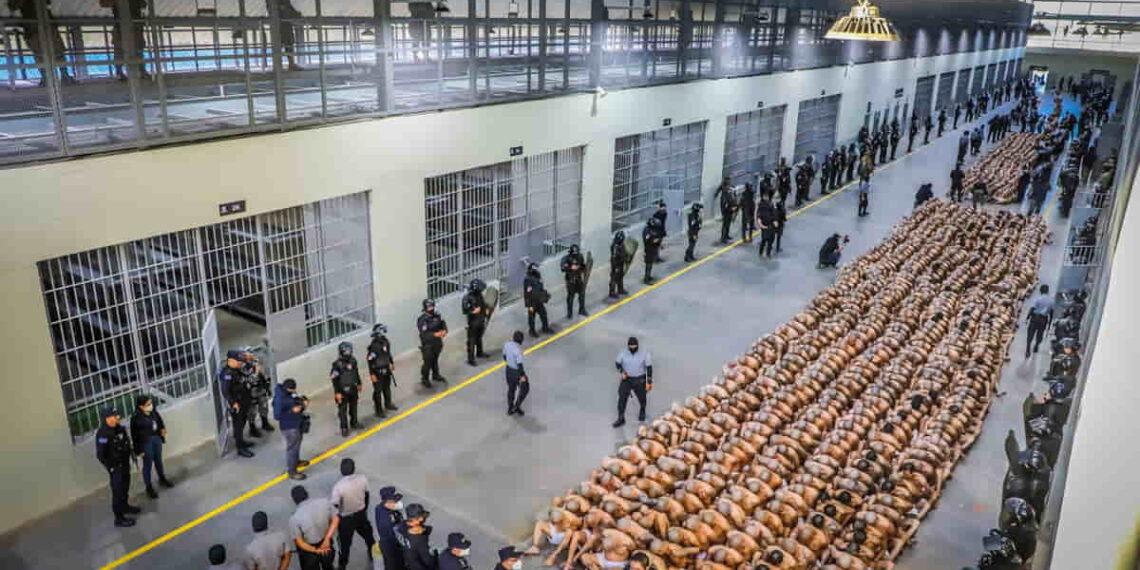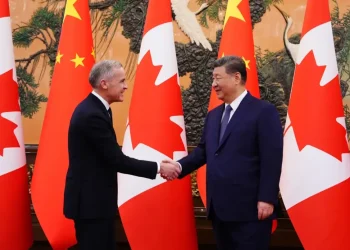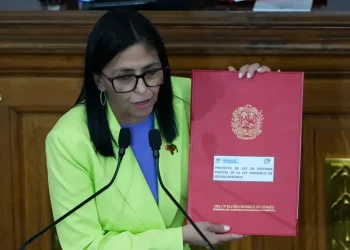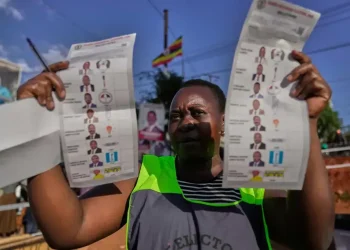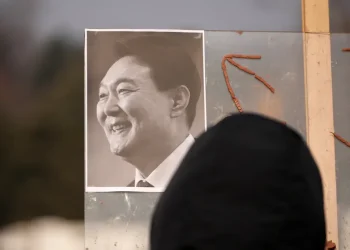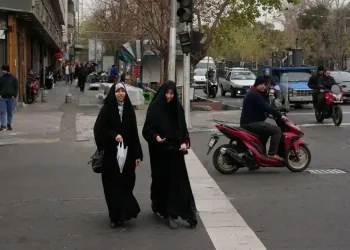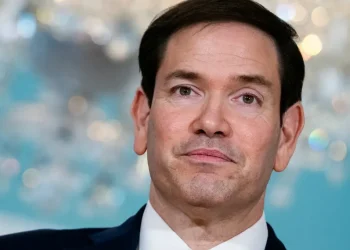El Salvador’s Controversial Deal to House US Criminals and Deportees
In an unprecedented move, El Salvador has agreed to house violent US criminals and accept deportees of any nationality, officials from both countries revealed on Monday. This deal with the Trump administration has raised alarms among critics and human rights organizations.
Key Details of the Agreement
US Secretary of State Marco Rubio announced the deal following a meeting with Salvadoran President Nayib Bukele. Rubio, on a trip to Central America to further Trump’s migration agenda, called the agreement “extraordinary” and “unprecedented.” The deal’s provisions include:
- Deportees and Criminals: El Salvador will continue accepting Salvadorans who were deported from the US for illegal entry. Additionally, the country has agreed to accept any deported criminal—regardless of nationality—including members of notorious transnational gangs like MS-13 and Tren de Aragua. These criminals will be housed in Salvadoran prisons.
- Housing US Criminals: Bukele has also agreed to house dangerous criminals with US citizenship or legal residency in El Salvador’s prisons. This would include individuals incarcerated in the US who are then sent to El Salvador.
Bukele confirmed the agreement on social media, noting that El Salvador is willing to accept only convicted criminals into its mega-prison (CECOT) in exchange for a fee. He emphasized that the fee would be significant enough to support El Salvador’s prison system, but relatively low for the US.
Potential Legal and Ethical Concerns
While the deal has sparked outrage among rights groups, questions remain about the legality and implications of such a proposal.
- Deporting US Citizens: A key issue is whether the US can legally deport its own citizens. Critics argue that deporting US nationals to a foreign country could violate international laws and agreements related to migrants’ rights.
- Human Rights Concerns: Human rights advocates have condemned the deal, with the League of United Latin American Citizens (LULAC) calling it “a sad day for America.” LULAC’s National President Roman Palomares emphasized that migrants should not be treated like commodities moved between countries.
- Unprecedented and Risky Proposal: Mneesha Gellman, a professor at Emerson College, described the deal as a bizarre arrangement between two authoritarian leaders. She argued that such a proposal would violate international norms and potentially damage the rights of migrants.
El Salvador’s Legal Context: The Mega-Prisons
One of the most concerning aspects of the agreement is the state of El Salvador’s prison system. Under Bukele’s administration, the country has experienced a sharp increase in incarcerations, many of which are based on suspicion rather than conviction. The government’s state of emergency, enacted in 2022, allows authorities to detain anyone suspected of being involved in gangs, including those not found guilty of any crime.
El Salvador’s prison conditions have been heavily criticized. The US State Department has issued warnings about the harsh conditions within Salvadoran jails, where prisoners reportedly lack access to basic rights, including due process.
A Strained Relationship with Transnational Gangs
El Salvador’s crackdowns on gangs such as MS-13 and Tren de Aragua have earned praise from the Trump administration, which views these gangs as major threats to US safety. Trump has frequently used these groups to justify his hardline immigration policies.
The US has recently targeted MS-13 and Tren de Aragua in raids, calling them destabilizing forces within the Western Hemisphere. Last month, Trump signed an executive order that specifically named these gangs, citing their violence and terror as a justification for harsher immigration enforcement.
On a recent visit to Latin America, US Special Envoy Mauricio Claver-Carone hinted that the deal would also involve sending members of Tren de Aragua back to Venezuela—although the logistics of this remain unclear.
Trump’s Broader Immigration Crackdown
This deal aligns with the Trump administration’s broader crackdown on immigration. The US government has ramped up efforts to arrest and detain undocumented immigrants, while stripping protections for those already residing in the country.
The El Salvador agreement is seen as part of a larger effort to push “safe third country” arrangements, where asylum seekers are sent to countries like El Salvador, even if they are not from there. Trump has previously threatened trade actions against countries that refuse to accept deported nationals, further solidifying the deal’s controversial nature.
This development comes on the heels of an agreement with Venezuela, where President Nicolás Maduro has agreed to accept Venezuelan deportees—including gang members. This is a notable shift in policy after years of frosty relations between the US and Venezuela.
Ongoing Controversies
While the deal may offer a solution to some of the Trump administration’s concerns about violent gang activity, it has ignited fierce criticism from human rights organizations, political leaders, and scholars. Critics argue that such arrangements could lead to further violations of international law, undermine the rights of deported migrants, and pave the way for more authoritarian tactics in immigration enforcement.
As the US government continues to face mounting pressure on its immigration policies, this deal marks a significant shift in how it plans to manage the deportation of criminals and migrants. However, it remains to be seen whether it will move forward or encounter serious legal and diplomatic obstacles.
This article was rewritten by JournosNews.com based on verified reporting from trusted sources. The content has been independently reviewed, fact-checked, and edited for accuracy, neutrality, tone, and global readability in accordance with Google News and AdSense standards.
All opinions, quotes, or statements from contributors, experts, or sourced organizations do not necessarily reflect the views of JournosNews.com. JournosNews.com maintains full editorial independence from any external funders, sponsors, or organizations.
Stay informed with JournosNews.com — your trusted source for verified global reporting and in-depth analysis. Follow us on Google News, BlueSky, and X for real-time updates.
